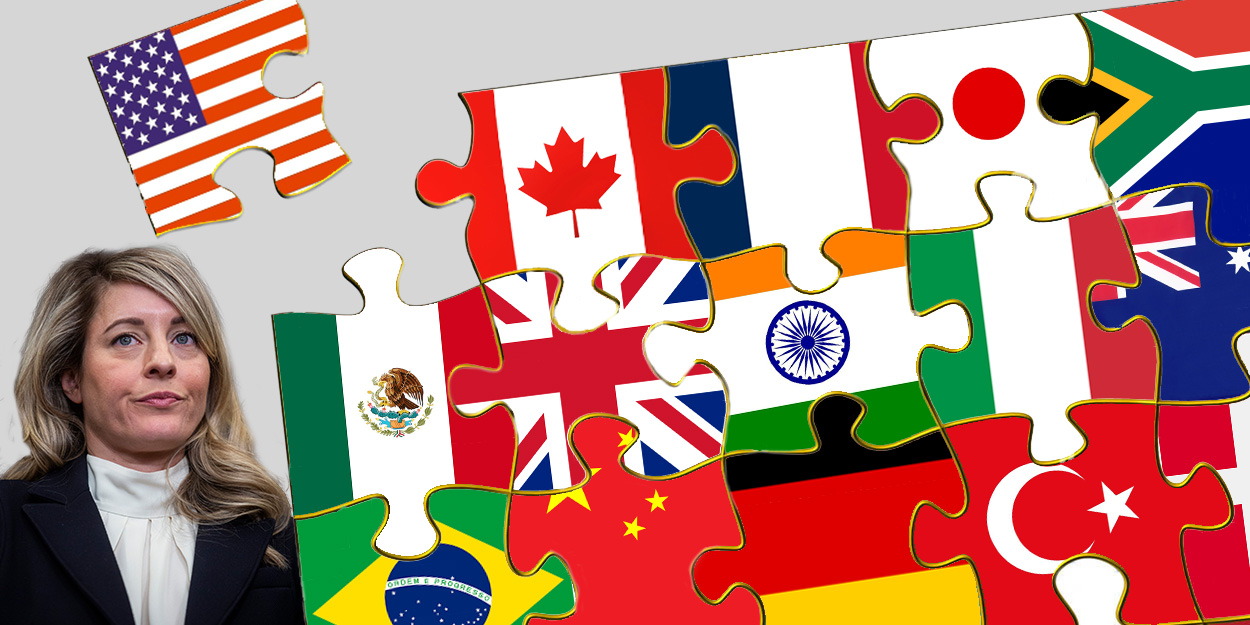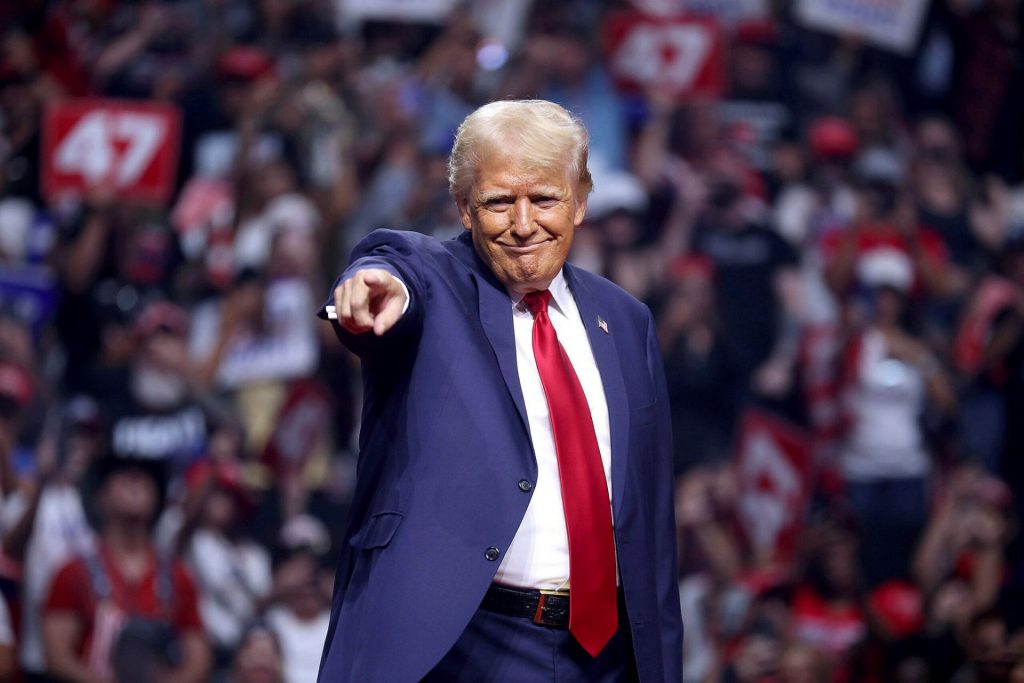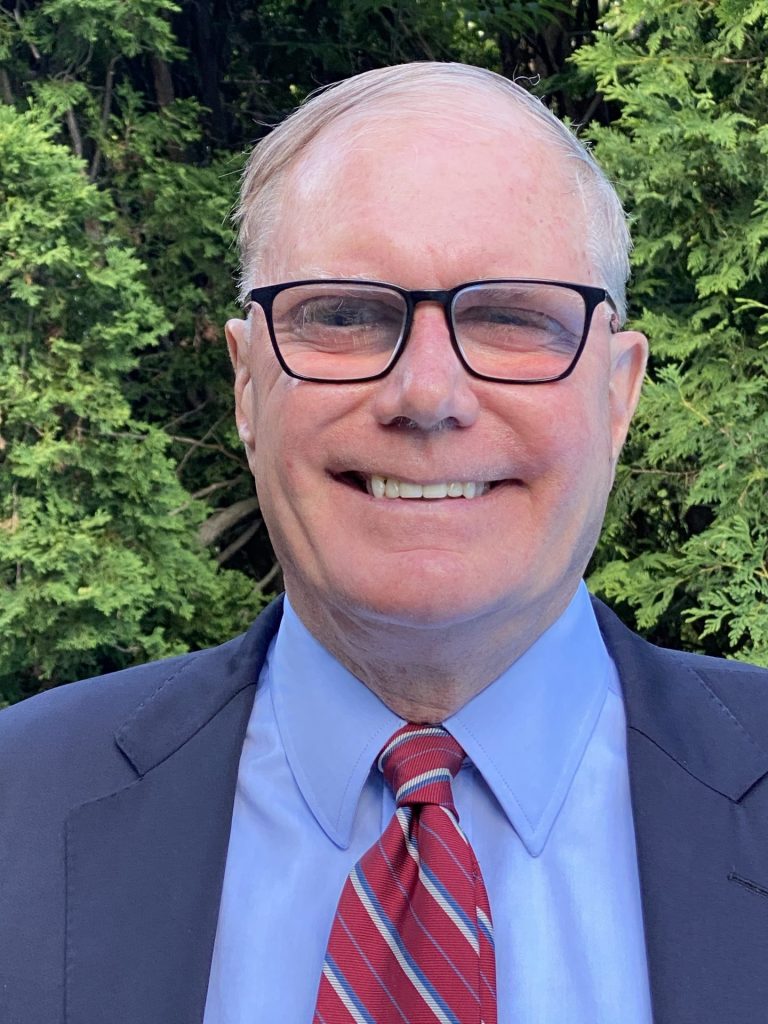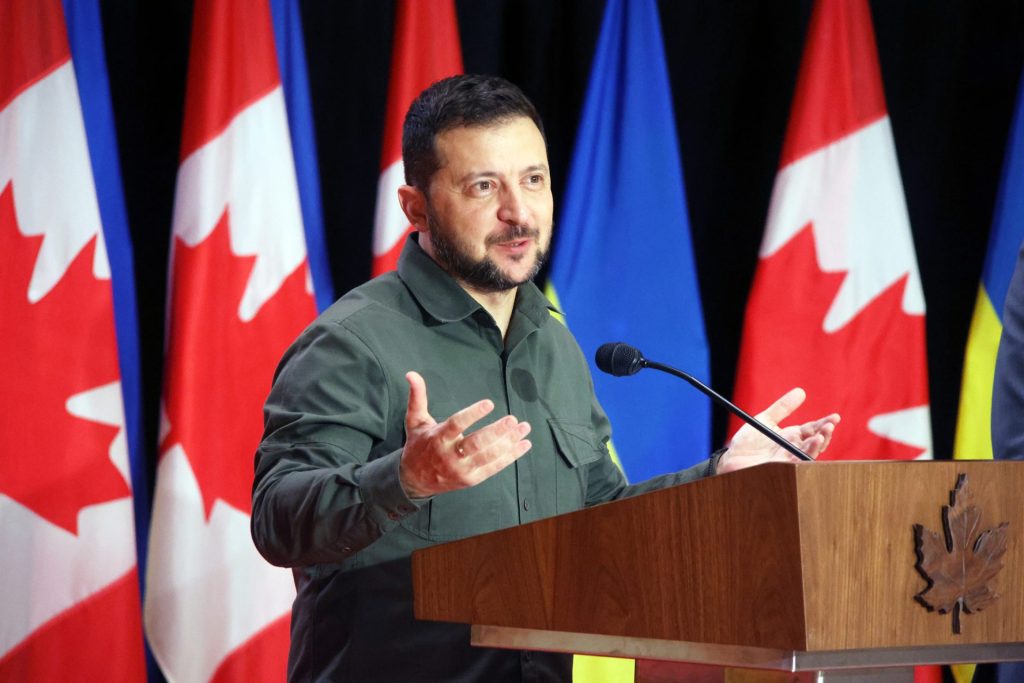‘We’re the canary in the coal mine’: Joly’s wake-up call to Europe as Canada looks to co-ordinate a Trump response with allies

Foreign Affairs Minister Mélanie Joly’s “wake-up call” to Canada’s allies only works if they start behaving like America “is a rogue superpower and an unreliable ally and partner,” says global security expert Will Greaves.
“It’s a wake-up call if we actually come to terms with and behave as though the United States is a rogue superpower and an unreliable ally and partner,” said Greaves, an associate professor of international relations at the University of Victoria.
Greaves said that is no small feat, and will take “an absolutely transformative shift in our thinking, in our practices, in our institutions, in our relationship to the world’s most powerful country.”
On her recent European trip to bolster co-operation on economic security and defence, Joly (Ahuntsic-Cartierville, Que.) said she alerted allies to the threats Canada is facing from U.S. President Donald Trump. As Joly finished a six-day trip to France, Germany, and Belgium, she said that allies were unaware of Trump’s threats to Canadian sovereignty.
“We’ve been under threat of many tariffs against us, and we’re the canary in the coal mine,” Joly told reporters on Feb. 18.
“Many of [the European countries] are not necessarily completely aware of what is going on, first in the U.S. and second in Canada. Every country in the world is looking at its own reality, and Europe has its own challenges,” she said, noting “it was a wake-up call for Europeans to hear what we’re going through.”
“It was necessary for me to be in Europe to tell them exactly what’s going on, to make sure that we would co-ordinate on any form of response to tariffs, and that we would be together defending our national security and sovereignty,” added Joly.
Greaves said both Canada and Europe underestimated what the second Trump administration would look like.
“If we cling to hope that the United States will come to its senses, or that Mr. Trump will be constrained or curbed by American domestic political forces, then it won’t have been a wake-up call because we won’t actually have woken up. We’ll still be dreaming, and we’ll be compromising our ability to respond,” said Greaves.
Former Canadian diplomat Colin Robertson agreed with Joly’s canary comments, and said that if Trump is prepared to go after the U.S.’s closest neighbours—Canada and Mexico—with a series of stacked tariffs, then “it serves as a kind of surrogate for what he probably would like to do to Europe and other countries.”
“And it’s unfortunate that, in that sense, we are the canary in the coal mine,” said Robertson, who is also a fellow at the Canadian Global Affairs Institute.

A month into his second term, Trump has announced and temporarily paused 25-per-cent tariffs on all Canadian goods, and 10 per cent on Canadian oil, has announced another 25-per-cent levy on all aluminum and steel imports, and has indicated he will announce another set of 25-per-cent tariffs on automobiles, pharmaceuticals, and semiconductor chips.
Fen Hampson, an international affairs professor at Carleton University, said it was valuable for Joly to warn others.
“We’ve got a truck that’s lost its brakes, that’s barrelling down on all of us. And we’re seeing the effects. So I’m sure that that message was well received,” said Hampson, who also co-chairs the Expert Group on Canada-U.S. relations.
“But then the question is, how do we make sure that the coal mine doesn’t fall down on all of us?” added Hampson.
Greaves said the best course of action is to “galvanize a coalition of allied democracies” through deeper integration and trade.
He said this would “balance some of the harms coming from the United States,” and allow these countries to “stand shoulder-to-shoulder with each other in a commitment that they won’t allow the United States to roll them one by one.”
Otherwise, it sets a scary precedent.
“Truly, no one is safe,” he said. “There will be no Western ally that the United States would hesitate to undermine, compromise, or in some way give away if the United States is able to do so with Canada.”
Moving ‘geopolitical tectonic plates’
Ottawa’s alarm bells aren’t just ringing for our allies, but for countries with frostier relations with Canada as well, like China.
“When I talk with the European diplomats, Japanese, and Asian diplomats, that’s how they see it as well. Even talking with the Chinese and they’re kind of surprised by what the U.S. is doing to Canada, but interested in how we are reacting. So yes, it’s been observed by the rest of the world,” said Robertson.

He added that the world is now seeing a different approach to international politics in modern history, where Trump now fits into a global system where the “big” countries dictate to the “small.”
“The U.S. has been the guardian of the rules-based order. Mr. Trump has no interest in that role, and that is going to force a major change,” said Robertson.
“That was a big differentiation [from] the last 75 years, where we had multilateral institutions and rules. And that’s shifting. So I think we’re returning to an earlier age, it’s a darker age for small- and medium-sized powers like Canada,” added Robertson.
Hampson said the global rules-based order is important because it provides stability.
“We need stability,” said Hampson. “The reason we have those rules is not because we like rules, because those rules are very much in our interests and provide predictability and stability. We may not get it with the Americans right now, but that doesn’t mean we shouldn’t and won’t get with other countries, particularly as we start to diversify.”
And now that the American government is turning its back to the world, Canada is now forced to look elsewhere.
“I’ve presented a vision of pragmatic diplomacy,” said Joly, “where ultimately, we are engaging with countries that we don’t necessarily always see eye to eye, but we have to do so to defend our national interests at a time where—and you’re seeing it even today—where geopolitical tectonic plates are moving and it is affecting the security of all countries on Earth.”
‘New sheriff in town’
The foreign affairs minister’s warnings to Canada’s international partners coincided with a memorable address from U.S. Vice-President JD Vance. Joly said his speech at the Munich Security Conference “was also a pivotal moment for Europeans.”
Vance used part of his address to the conference to criticize the state of democracy, freedom of religion, and freedom of speech in Europe.
“The threat that I worry the most about, vis-à-vis Europe, is not Russia, it’s not China, it’s not any other external actor. What I worry about is the threat from within, the retreat of Europe from some of its most fundamental values shared with the United States,” said Vance to the conference on Feb. 14.

“There is a new sheriff in town,” he said later in his speech.
The U.S. vice-president’s speech was ill-received by many Europeans, including the European Union’s foreign policy chief Kaja Kallas who said Vance was “trying to pick a fight with us.”
A seat at the table
Joly told reporters that it wasn’t just Vance’s speech that has set off alarm bells for Europe, but also the conversations “that the American administration is having directly with Russia.”
On Feb. 18, the U.S. and Russian governments held ‘peace talks’ in Saudi Arabia on ending the Kremlin’s war in Ukraine. The snag? The U.S. and Russia are holding these talks without Ukraine’s participation.

Greaves called it “a fairly extraordinary state of affairs.”
“It is certainly a totally remarkable, exceptional situation where, for reasons that we don’t fully understand, the United States under Mr. Trump’s leadership, is choosing to actively attack its historically closest allies and friends in exchange for not getting anything from Russia, but giving Russia everything, more or less, that it wishes,” said Greaves.
Joly said Canada can step in and play a role in protecting Ukraine.
“I’ve met with many European colleagues, and we said we want to be part of these conversations regarding security guarantees,” said Joly.
But Hampson said Canada should be “demanding” to be part of the discussions on ending the war in Ukraine.
“Europeans right now are kind of squabbling among themselves over what to do about Ukraine, but they do recognize that [Canada has] an important role there,” said Hampson. “One of the things we should be demanding is a seat at the table in those talks, not simply to be told afterwards what’s going to happen. We’ve been major funders, and we should be saying to Washington in no uncertain terms, along with the Europeans, we expect to be there.”
sduch@hilltimes.com
The Hill Times





 LICENSING
LICENSING PODCAST
PODCAST ALERTS
ALERTS













